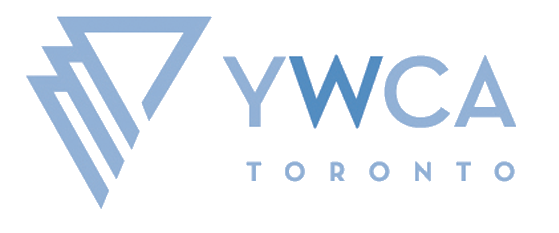Read: 4min
Gender-Based Violence (GBV) and Intimate Partner Violence (IPV) cast profound shadows over individuals, families, and their communities. Between 2018 and 2022, the Canadian Femicide Observatory for Justice and Accountability (CFOJA) revealed that every two days, a woman or girl is killed in Canada. Statistic Canada further reports that one in three women reports experiencing unwanted sexual attention and abuse in public.
The pervasive impact of GBV extends across every jurisdiction, riding, and community in Canada. However, its grim consequences are disproportionately felt by certain equity-denied communities, including Indigenous women and girls, those in rural, remote, and Northern areas, Black women, racialized women, women with disabilities, non-status, immigrant and refugee women, trans and gender diverse individuals, and 2SLGBTQIA+ communities.
GBV and IPV are preventable epidemics and should be addressed as a public health concern.
GBV and IPV come at a great cost – to lives, society, health, and justice systems and carry profound public health implications that go beyond obvious threats to safety. In addition to the immediate consequences of direct harm, death, or injury, individuals who have experienced gender-based violence face an elevated risk of encountering a spectrum of long-term challenges related to physical, mental, sexual, and reproductive health. Furthermore, the trauma endured increases the likelihood that they may experience or become involved in future instances of violent victimization.
GBV was declared a shadow pandemic by the United Nations (2021) and then, acknowledged an epidemic by The Honourable Arif Virani, Canada’s Minister of Justice and Attorney General of Canada in a letter to David A. Cameron, the Regional Supervising Coroner, all while several municipalities in Ontario have declared GBV and/or IPV as an epidemic. Naming IPV as an epidemic has been identified as a key priority by the jury on the inquest into Renfrew County’s triple femicide and the authors of the Final Report of the Mass Casualty Commission, responding to Nova Scotia’s April 2020 mass shooting. Following these recommendations, some member associations from the YWCA Canada movement started to highlight the huge necessity of declaring GBV and IPV as epidemic and started advocacy works to see declaration come to fruition across Canada. Today, we wanted to spotlight the powerful work that YWCA Toronto undertaken to advance the recommendation to declare IPV and GBV an epidemic locally and provincially.
GBV and IPV must be addressed by all levels of government
In March 2022, YWCA Toronto shared its concerns and recommendations on how to address Intimate Partner Violence in Canada with Canada’s House of Commons Standing Committee on the Status of Women. Through their submission, YWCA Toronto focused on 7 themes: Education and Prevention Programs and Strategies, Financial Support, Safe and Affordable Housing, Mental Health Support, Women and Gender Diverse People with Precarious Status, Justice System Response, and a Stable Violence Against Women and GBV Sector. Each theme provides key and tangible recommendations that imply a holistic response needed to meaningfully address IPV in Canada.
This advocacy isn’t without obstacles. In June 2023, Sami Pritchard, Interim Director of Advocacy and Communications, was in Renfrew County alongside GBV sector partners from across the province for a gathering to discuss provincial advocacy efforts to address this epidemic of violence. On the eve of the one-year anniversary of the Renfrew County Inquest (otherwise known as the CKW Inquest), the Ontario government rejected the CKW inquest recommendations to declare IPV an epidemic, along with many other recommendations. YWCA Toronto, through a press release written by Sami Pritchard expressed their disappointment with this decision and explained the importance of declaring GBV and IPV an epidemic for survivors, the families of those lost to femicide and frontline workers. She, at the same time, expressed hope and strength for the future and emphasizes a profound sense of empathy and support for survivors. Included in this statement was a call to action for Toronto Mayor-elect, Olivia Chow to declare IPV and GBV an epidemic in Toronto. Finally, YWCA Toronto reiterated their commitment to advocating for municipalities, provinces and territories and country free of violence.
Before officially beginning her term as Mayor, Mayor Chow met with YWCA Toronto wherein they discussed the urgency to have Toronto City Council make this declaration. In her first City Council Meeting, Mayor Chow presented a motion to have IPV and GBV declared an emergency and this motion was passed unanimously. This declaration being made was the result of numerous advocacies works and collaboration with other organizations and activists who have led and urged action to address this epidemic of violence. As celebrated on their social media, the declaration by the Toronto City Council is one step forward and not the last one. This declaration was moved by and supported by the Mayor Olivia Chow who, alongside many other members of council, shared her own experience of violence.
One of their most recent successes is their campaign urging the province of Ontario to declare IPV and GBV an epidemic. As a part of the campaign, individuals are encouraged to sign their letter writing petition, sending a message to the Premier to make the declaration in Ontario and more widely, support survivors of GBV and IPV through stronger sector support. On December 6, the National Day of Remembrance and Action on Violence Against Women, they launched an open letter urging the Premier to make the declaration. This letter was signed by more than 100 advocacy and GBV service organizations – including YWCA Canada and presents a testament to the urgency to address this violence. While much work remains, the collective advocacy to make these declarations happen is something that keeps YWCA Toronto hopeful. Please consider joining the calls to action and signing their letter writing petition today.
